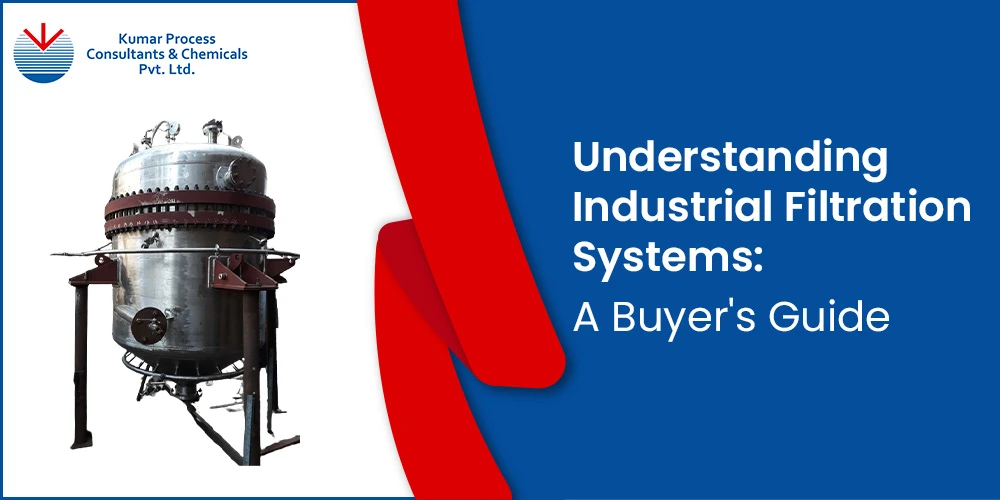Understanding Industrial Filtration Systems

When we think about products like gas, mining materials, or renewable energy, it’s easy to overlook the complex processes they undergo before reaching consumers. One of the key steps in this journey is industrial filtration—a process that removes contaminants and impurities to ensure products meet strict safety and quality standards. Industrial filters are used for purifying water to refining crude oil and filtering emissions.
In this article, we’ll discuss the types of industrial filtration systems, how they work, and where they are used.
What is Industrial Filtration Systems ?
Industrial filter systems come in various types to suit the needs of different businesses. Industrial filters are important for cleaning liquids and gases by removing impurities and contaminants.
How Industrial Filtration Works ?
Here’s how the process works:
- Choosing the Filter Material: A suitable filter, like a membrane or porous material, is selected based on the specific use.
- Filtration Methods: Techniques like mechanical screening, adsorption, or electrostatic attraction are used to remove particles depending on their size and type.
- Filtration Equipment: Devices like filter presses, cartridge filters, or centrifuges are used to carry out the filtration efficiently.
- Filtration Process: The liquid or gas flows through the filter, which traps impurities and lets the clean material pass through.
- Maintenance: Regular cleaning or replacing filters keeps the system working well and extends its lifespan.
Types of Industrial Filters
- Depth Filter: Porous materials capture particles of various sizes, commonly used in pharmaceuticals, food, and water treatment.
- Membrane Filter: Semi-permeable membranes separate particles based on size, used for precise filtration in industries like biotech and electronics.
- Adsorption Filter: Uses materials like activated carbon to remove dissolved impurities and odors, ideal for water and air purification.
- Electrostatic Filter: Uses electrostatic charge to capture fine particles, commonly used in HVAC systems and cleanrooms.
- Mechanical Filter: Uses physical barriers like screens and strainers to trap larger particles, ideal for coarse filtration.
Applications of Industrial Filtration
- Oil and Gas: Removes impurities from crude oil, gas, and process fluids.
- Water Treatment: Ensures clean drinking water and treats wastewater by removing contaminants.
- Pharmaceuticals: Ensures sterility and purity in drug formulations and biopharmaceuticals.
- Food and Beverage: Used for purification, clarification, and sterilization of products.
- Chemical Processing: Purifies raw materials and controls product quality.
- Automotive: Maintains cleanliness of fluids in automotive systems to prevent damage.
- Electronics: Achieves high purity for microchip and electronic component manufacturing.
FAQS
What is an industrial filter?
Industrial filtration is the process of removing contaminants from air and other gases in a manufacturing or industrial setting. By removing these particles, industrial filtration helps to protect equipment and the work environment.
What is the industrial filtration process?
Industrial filtration processes are used for the separation of one substance from another, such as solids, liquids, and gases, with the aid of an interposing medium.
Why is industrial filtration important?
Industrial filtration is crucial in industrial manufacturing applications including, pneumatic conveying, additive manufacturing, and landfill gas collection. It helps to keep the air and gas free from contaminants during operations, helping to ensure the purity of the process outputs.
What are the main factors considered while selecting filtration equipment for an industrial unit?
Selecting the right industrial filtration system involves many different factors including particle size of contaminants, operating conditions of the system, the chemical compatibility of the system, and the physical configuration of the housing unit.


